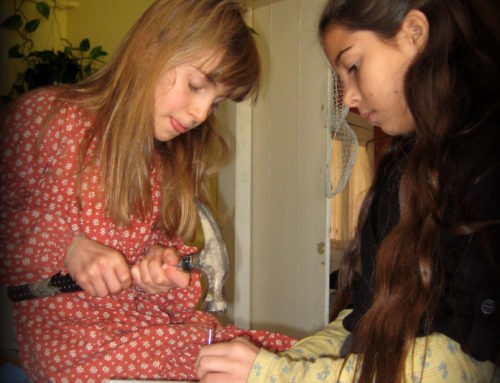Age Discrimination
We have perceived children for so long as immature and incompetent that we have barred them from participating in activities that allow them to mature and gain competence in the world. These ideas are based more on our sentiments about children however, than on the validity of what children, if they are allowed, are actually capable. Age in and of its self is neither a measure of competence nor of maturity, but it is constantly used to justify the discrimination against children.
Age = Lack of Experience?
Another argument for paternalism and for age discrimination against children and young people is their lack of experience and perceived immaturity and incompetence. The way we address these issues, perceived or real, generally serves to reinforce them rather than to assist an inexperienced person to become more experienced or to gain maturity and competence. Jean Baker Miller in her book Toward a New Psychology of Women discusses temporary inequality, such as that exists between a more experienced person and a less experienced person- adult and a child for example. “The ‘superior’ party presumably has more of some ability or valuable quality which she/he is supposed to impart to the ‘lesser’ person… The ‘superior’ person is supposed to engage with the ‘lesser’ in such a way as to bring the lesser member up to full parity…” “The trouble with this type of inequality,” she continues “is that they exit within a context of a second type of inequality… which teaches us how to enforce inequality but not how to make the journey from unequal [having less knowledge ability or experience] to equal”.
Experience and Skill rather than Age as the Deciding Factor…
Lack of experience in a given area does often prohibit one from participation from that activity. We often require that one prove their experience before they are allowed to participate in a given activity. We require license or other sorts of proof before we trust people with certain skills. We would not want someone who has no proof of experience-and who does not meet a certain standard of ability-to perform surgery. One who has never driven a car before should not be trusted to drive down a busy street. These restrictions to participation make sense. Anyone who cannot fulfill the minimum requirements for a task should not be allowed to participate unsupervised in such a task until the required skills have been mastered. This is true of anyone. Once one can meet these requirements, then participation in such activities should be granted. The trouble is we connect inexperience directly with age and then age becomes the determiner of someone’s ability to participate, not whether or not they have the requisite skills. “What needs to be demonstrated is that the lacks of a particular child or children of a certain age are relevant to the specific set of skills being discussed” (Ann Palmeri,)
Is Exclusion Based Purely on Age Justifiable?
Age has very little to do with the ability to participate in a plethora of activities from which we bar young people (irrespective of ability needed to perform a task). For example, why do we need an age requirement to determine someone’s capability of driving? If a person can prove their ability to be a responsible driver, should that not be sufficient? Obviously, some younger people would be incapable of driving purely based on physical size. Arguments say that young people are more reckless but “there is no good test, prior to long-term driving, of driver responsibility and there is no good evidence for saying that teenage recklessness is inevitable; in fact most teenagers are not reckless at all and maybe younger ones would be less so” (Palmeri). What then, should age and driving have to do with each other? If a person can drive responsibly, then what real justification other than age discrimination do we have for barring someone (who is capable) from driving based on his or her age?
Are Age and Experience Really Synonymous?
What proof do we have, also, that age is married with experience, responsibility, maturity and competence? There are plenty of immature, incompetent and irresponsible adults that lack certain levels of experience, but we do not bar them, on these grounds in full participation in adult society. On the flip side, young people, given the chance, can prove themselves entirely mature, competent and responsible in a number of areas. While age does grant to some extent greater understanding and experience in life, it is by no means a determining factor to the qualities mentioned above and, therefore, people should not be excluded from activities solely on grounds of age. Just as Martin Luther King Jr. had the vision of a time when people are judged “not by the color of their skin but by the content of their character” we should not judge or restrict people purely on their age, but of what they are capable and the quality of the persons they are.
This is an excerpt from a longer paper titled Paternalism and Age Discrimination Towards Children which includes citations and a bibliography for further information. (Email me if you would like a copy and I will send it to you)
I also recommend checking out this article: Young and Oppressed, written by two young people.
Thoughts? Comments? Are there things that people should legitimately be barred from based purely on their age- if so, what and why? As a young person or if you are a young person, what sorts of discrimination or obstacles have you had to overcome based on your age?


Leave A Comment